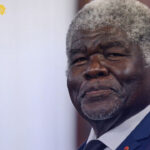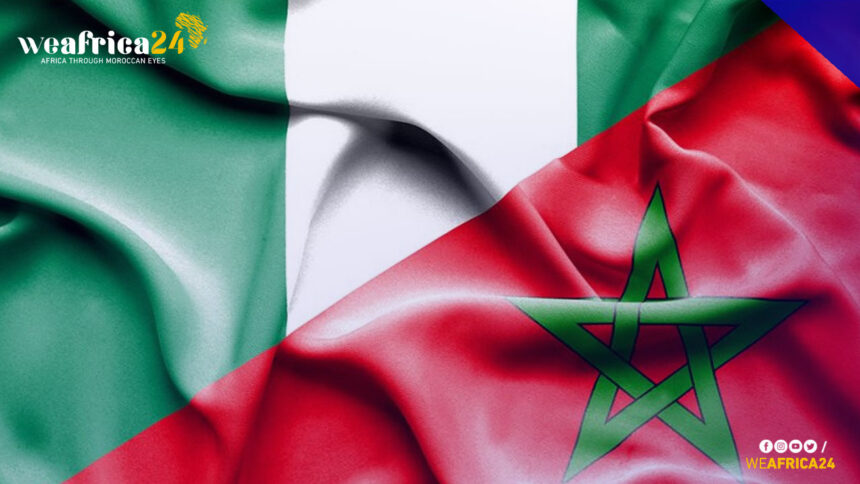Morocco and Nigeria have a long history of diplomatic relations, which dates back to the time when Nigeria was still a British colony. Over the years, the two countries have enjoyed a cordial relationship that has been characterized by mutual respect and cooperation in various areas of common interest. This article explores the Morocco-Nigeria Diplomatic History, highlighting the key milestones that have shaped the relationship between the two countries over time.
Early Days of Diplomatic Relations
The relationship between Morocco and Nigeria dates back to the early days of Nigerian independence. In 1960, when Nigeria gained independence from Britain, Morocco was among the first countries to recognize Nigeria’s sovereignty. Morocco was also among the first African countries to establish an embassy in Lagos, Nigeria’s commercial capital. This gesture was seen as a significant step towards strengthening diplomatic relations between the two countries.
In 1961, the Moroccan King, Mohammed V, visited Nigeria on a state visit. During the visit, he met with Nigerian leaders, including Prime Minister Tafawa Balewa. The visit was an opportunity for the two countries to discuss ways of strengthening their bilateral ties and exploring new areas of cooperation.
In 1963, Nigeria and Morocco signed a cultural agreement aimed at promoting cultural exchanges between the two countries. The agreement saw the establishment of a cultural center in Lagos, which was later renamed the Moroccan Cultural Center. The center served as a hub for cultural activities, including art exhibitions, film screenings, and music concerts, among others.
Morocco’s Support for Nigeria During the Civil War
In 1967, Nigeria was plunged into a civil war that lasted for three years. During the war, Morocco supported the Nigerian government by providing military aid and other forms of assistance. Morocco’s support for Nigeria during the civil war was seen as a significant gesture of solidarity between the two countries.
Bilateral Cooperation in the 1970s and 1980s Between Morocco and Nigeria
The 1970s and 1980s were marked by increased cooperation between Morocco and Nigeria in various fields, including trade, education, and agriculture. In 1974, the two countries signed a trade agreement aimed at promoting trade and investment between them. The agreement saw the establishment of joint ventures in various sectors, including agriculture, mining, and manufacturing.
In 1976, Nigeria and Morocco signed an education agreement aimed at promoting academic exchanges between the two countries. The agreement saw the establishment of scholarship programs that enabled Nigerian students to study in Moroccan universities and vice versa. The program was aimed at promoting cultural exchanges and enhancing academic cooperation between the two countries.
In the 1980s, Nigeria and Morocco collaborated on various agricultural projects aimed at improving food security in both countries. The two countries established a joint commission on agriculture, which was tasked with developing strategies aimed at improving agricultural productivity in both countries. The commission was instrumental in promoting the exchange of agricultural technologies and practices between the two countries.
Bilateral Cooperation During the 1990s and 2000s
In the 1990s and 2000s, Morocco and Nigeria continued to deepen their cooperation in various fields, including trade, energy, and tourism. In 1991, the two countries signed a cooperation agreement aimed at strengthening their economic ties. The agreement saw the establishment of joint ventures in various sectors, including energy, mining, and tourism.
In 1994, Morocco and Nigeria signed an agreement aimed at promoting cooperation in the field of energy. The agreement saw the establishment of a joint commission on energy, which was tasked with developing strategies aimed at promoting energy cooperation between the two countries. The commission was instrumental in promoting the exchange of technologies and best practices in the field of energy.
In 2004, the two countries signed a tourism cooperation agreement aimed at promoting the exchange of tourists between the two countries. The agreement saw the establishment of direct flights between Lagos and Casablanca, which made it easier for tourists to travel between the two countries.
Moroccan-Nigerian Joint Commission
The Moroccan-Nigerian Joint Commission is a bilateral platform that was established in 2016 to promote cooperation between the two countries. The commission is co-chaired by the foreign ministers of both countries and meets annually to review progress made in various areas of cooperation.
The joint commission has been instrumental in promoting cooperation in various fields, including agriculture, industry, and trade. In 2018, the two countries signed several agreements aimed at promoting cooperation in the areas of agriculture, industry, and investment.
In 2019, the two countries signed an agreement to build a gas pipeline that will connect Nigeria’s gas reserves to Morocco and Europe. The pipeline, which is expected to be completed by 2025, will be one of the longest in the world and will promote energy cooperation between the two countries.
Morocco-Nigeria Diplomatic History: The Conclusion
Morocco and Nigeria have enjoyed a long-standing relationship that has been characterized by mutual respect and cooperation. Over the years, the two countries have worked together to promote cooperation in various fields, including trade, energy, and tourism. The establishment of the Moroccan-Nigerian Joint Commission in 2016 was a significant milestone in the relationship between the two countries. As it has provided a platform for promoting cooperation and strengthening ties between the two countries. As the two countries continue to deepen their cooperation, there is no doubt that the relationship between Morocco and Nigeria will continue to thrive in the years to come.







